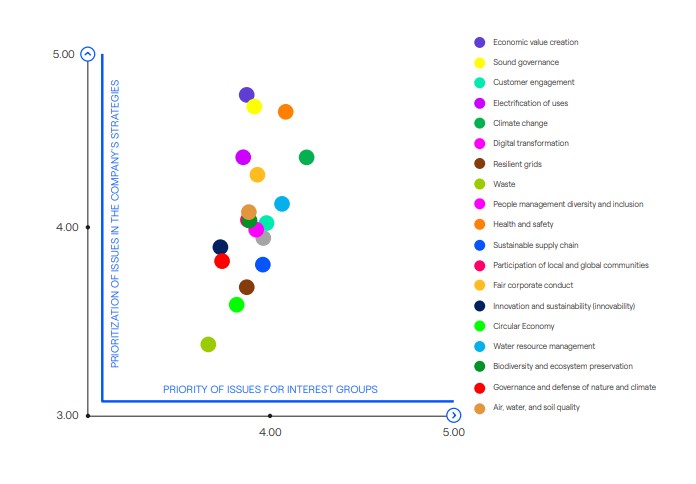In order to integrate the expectations of our stakeholders or interest groups in a structured way and aligned with the Company's purpose, Enel Chile and its subsidiaries carry out an annual process of identification of priority issues, through which it evaluates and selects the economic, ethical, environmental and social issues that are relevant to stakeholders and that are part of the strategic priorities of the company.
The materiality of the different topics of the Company's strategy was obtained through a survey to the managers of the different areas of the organization. The analysis of the information collected at this stage is consistent with the guidelines of the Strategic Plan 2024- 2026, the objectives of the business lines and the commitments made by the Company with its policies and standards of conduct.
The results of the materiality analysis of Enel Chile and subsidiaries are reflected in our materiality matrix and are specifically linked to the Sustainable Development Goals (SDGs), promoted by the United Nations.
Materiality Matrix
With the information collected, Enel Chile and its subsidiaries build the “Materiality Matrix”, the issues that are a priority for its stakeholders and, at the same time, strategic for the Company. This matrix is presented to the Board of Directors and the Board Committee and are the basis for defining the issues to be addressed in our Sustainability disclosure, through which we respond to the expectations of stakeholders who guide the focus of the work of the entire Company. This is reflected in the Sustainability Plan of Enel Chile and subsidiaries, which is also framed in the challenges posed by the current context and the Sustainable Development Goals (SDGs).


